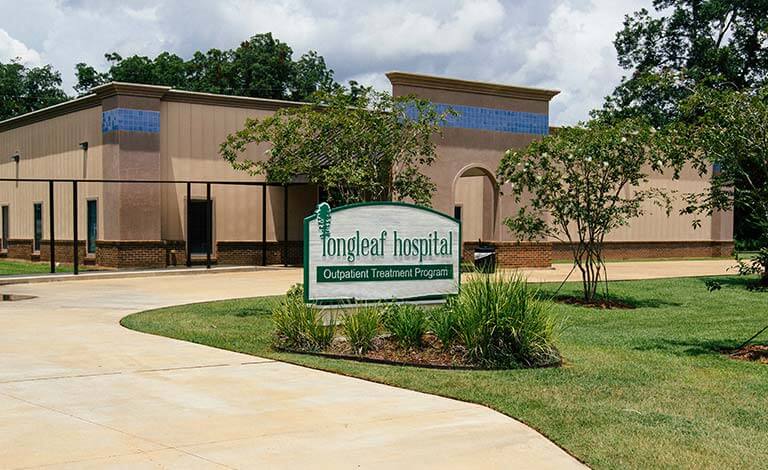Prescription painkillers are extremely potent medications that should always be consumed with caution when they are prescribed.
Understanding Prescription Painkiller Addiction
Learn about prescription painkillers and substance abuse
Whether needed to manage pain following an injury or surgery, or taken as a means of managing a medical condition that causes pain, painkillers are extremely addictive in nature and could cause an addiction if a doctor’s warnings aren’t taken to heart. In fact, prescription painkillers are in the same classification of drugs as heroin, which makes them all the more dangerous if they are abused. Additionally, if painkillers like Vicodin, Opana, Fentanyl, or OxyContin are intentionally misused in order to achieve a mind and mood-altering high, the resulting effects can be devastating and life-altering.
If you have been in either of the scenarios described above and are now realizing that you simply can’t stop abusing a prescription painkiller or painkillers, you could be an excellent candidate for professional help. Especially if you’ve experienced adverse effects as a result of your abuse of these sort of substances and are now at your wit’s end in terms of what your addiction has cost you, there is another avenue that you can take. Professional chemical dependency treatment can help you get through painkiller withdrawal safely, assist you in understanding your addiction and yourself better, and provide you with the life-changing resources you need to reclaim your life from a painkiller addiction once and for all.
Statistics
Prescription painkiller addiction statistics
The United States is currently experiencing an opioid epidemic that is taking hold all across the country. The Centers for Disease Control and Prevention, or CDC, has gone on record to say that since the number of prescriptions written for painkillers has increased 400% since the year 2000, an alarming number of people are now addicted to these substances. Overdoses on painkillers and other opioids are costing people their lives in every corner of the nation, which certainly speaks to the need for effective substance abuse services for people from all walks of life.
Causes and Risk Factors
Causes and risk factors for prescription painkiller addiction
You’re probably aware of what led you to the abuse of prescription painkillers, though you may not be fully aware of why you’re now unable to stop when, maybe, others around you are not battling this type of substance abuse in the same way. To understand the contributing factors that may have influenced the development of this problem in your life, consider the following:
Genetic: A substantial amount of research demonstrates that addiction tends to run in families. Especially if a person has a close relative who has struggled with the abuse of prescription painkillers or other drugs, the risk for that individual grappling with similar issues is greater. Therefore, it’s a good idea to look into your own family history to determine if substance abuse is something that has affected your own family members.
Environmental: The places and situations that you’ve been exposed to can influence whether or not you’ll come to abuse prescription painkillers. For example, if you’ve experienced some sort of medical problem that warranted a prescription for a painkiller, your odds of abusing it are increased. Additionally, if you surround yourself with others who abuse drugs, lack healthy coping skills, or have inadequate social support, you may be at risk of turning to the misuse of prescription painkillers as well.
Risk Factors:
- Ease of access to prescription pain medications
- Experiencing severe acute or chronic pain
- Experiencing trauma
- Exposure to ongoing stress
- Family history of substance abuse
- Poor coping skills
- Prior substance abuse
Signs and Symptoms
Signs and symptoms of prescription painkiller addiction
There are many obvious and not-so-obvious signs and symptoms that you’re struggling with an addiction to prescription painkillers. To know for sure you must be assessed by a professional. However, if you’re experiencing any of the following effects, you’ll want to get an assessment and begin receiving treatment as soon as you’re able:
Behavioral symptoms:
- Diminished participation in once enjoyable activities
- Lying about whereabouts
- Slurred speech
- Social withdrawal and isolation
- Stealing medication that has been prescribed to someone else
- Visiting multiple doctors to get prescriptions for painkillers
Physical symptoms:
- Constipation
- Decreased blood pressure
- Disrupted sleep patterns
- Heavy perspiration
- Impaired coordination
- Itchiness
- Pupil dilation
Cognitive symptoms:
- Confusion
- Disorientation
- Poor decision-making skills
Psychosocial symptoms:
- Depression
- Irritability
- Mood changes
Effects
Effects of prescription painkiller addiction
Remaining addicted to prescription painkillers can an adverse toll on your life. The following effects are among those that can happen to you if you delay or neglect to receive professional treatment to defeat this sort of chemical dependency problem:
- Chronic unemployment
- Development of physical health problems
- Dysfunctional interpersonal relationships
- Family discord, including separation and divorce
- Financial distress
- Homelessness
- Job loss
- Legal problems, including arrest and incarceration
- Onset of mental health concerns
- Polysubstance abuse
- Social isolation
- Suicidal ideation
- Suicide attempts
Co-Occurring Disorders
Prescription painkiller addiction and co-occurring disorders
Should you seek treatment for a prescription painkiller addiction, you’ll likely be assessed so that your treatment providers can determine if you’re struggling with other addictions or mental health concerns at the same time. If you are, you may be able to receive treatment for your prescription painkiller abuse problem and one or more of the following co-occurring concerns simultaneously:
- Major depressive disorder
- Other substance use disorders
- Persistent depressive disorder
- Posttraumatic stress disorder (PTSD)
- Bipolar disorder
Withdrawal & Overdose
Effects of prescription painkiller withdrawal and overdose
Effects of prescription painkiller withdrawal: Given the addictive nature of prescription painkillers, it’s very possible that your body will become accustomed to the presence of these sort of drugs. When this occurs, you’re likely to experience withdrawal, which can include some of the following symptoms and effects:
- Agitation
- Diarrhea
- Dysphoria
- Fever
- Heavy perspiration
- Inability to sleep
- Irritability
- Loss of appetite
- Muscle pain
- Nausea
- Pain in bones
- Powerful cravings
- Runny nose
- Tremors
- Twitches
- Vomiting
- Watery eyes
Effects of prescription painkiller overdose: One of the most life-threatening consequences of abusing prescription painkillers is overdose. This sort of outcome results after you’ve consumed more of a painkiller than your body can handle. If you begin experiencing any of the following, it’s in your own best interest to seek medical help as soon as possible:
- Breathing problems
- Extreme disorientation
- Loss of consciousness
- Pinpoint pupils
- Seizure
- Slowed pulse












